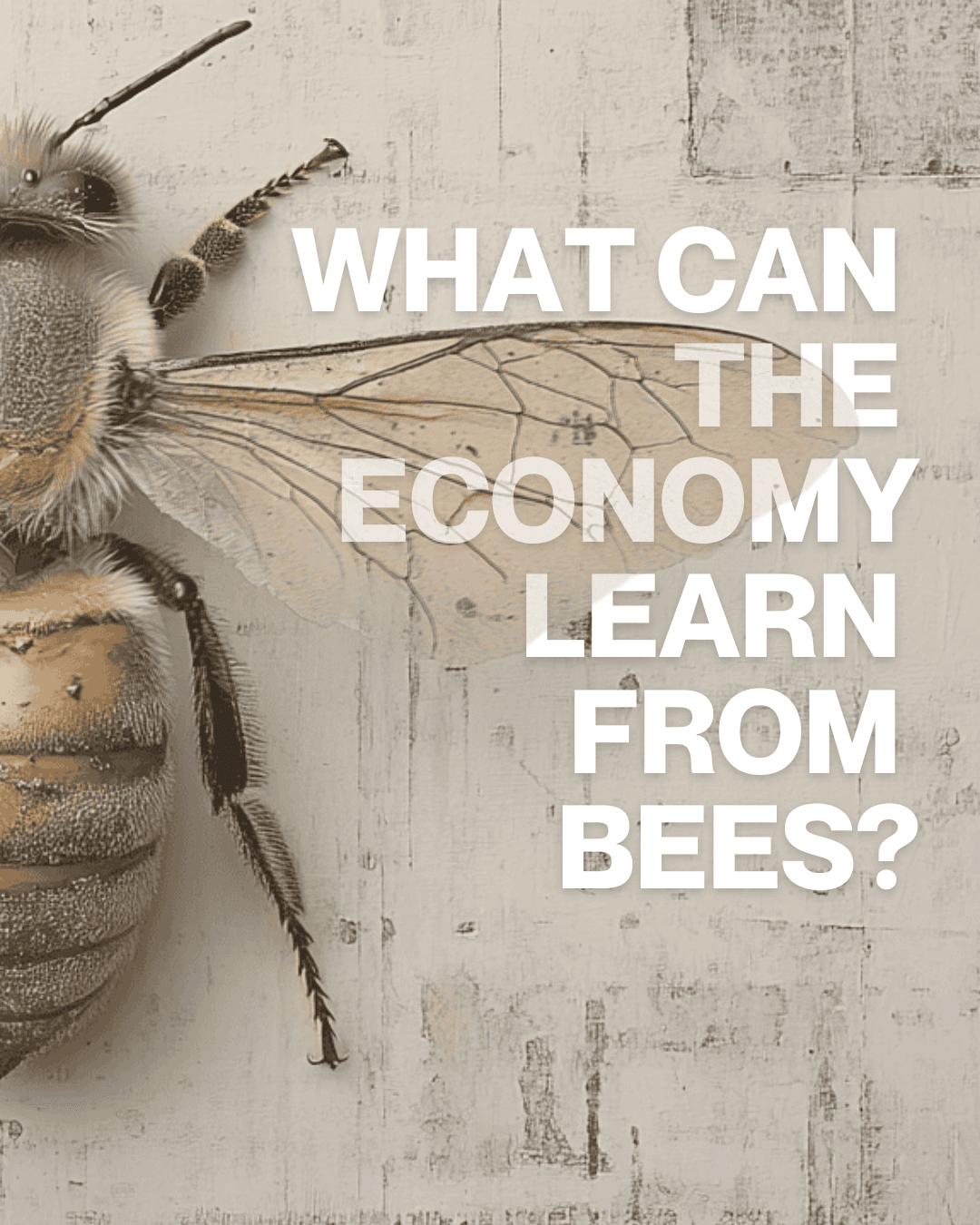How can the economy learn from bees?
Five principles from bees to strengthen resilience and impact in companies and cooperatives

Typology
Article
Scopes
Economy
Five principles from bees to strengthen resilience and impact in companies and cooperatives.
Bees are not only a model in nature but also a source of profound lessons for organizations that want to evolve, become more resilient, and generate meaningful change. Through their behavior, bees show us how ecological processes can serve as a reference for optimizing human systems, with an approach rooted in co-creation and natural resilience.
Below, we explore five essential principles inspired by bees’ behavior that companies and cooperatives can adopt to achieve lasting and transformative impact.
1. A clear purpose integrated into the ecosystem
In a bee colony, the purpose is clear and shared by all: to survive, protect, and grow in harmony with the needs of the ecosystem. Each bee acts to maintain the balance of the system, working without disrupting the nature of its environment.
This reminds us that organizations must also operate in coherence with their broader ecosystem, with a clear purpose aligned with the common good. Purpose should not be just an external vision but an integrating force that connects every person and every action to their community and environment. Such clarity strengthens long-term resilience, as organizations grounded in a solid purpose have the foundation to face challenges and adapt without losing direction.
2. Clarity of roles and shared responsibility
Bees are not only efficient but also operate in perfect harmony, with a distribution of roles that ensures the functionality of the entire system. They do not act merely out of individual need but for the good of the hive. This involves an inherent ability to assume responsibility flexibly, adapting to the needs of the community.
As Carol Sanford highlights, this vision of shared responsibility is not just about dividing tasks, but about designing a system where each member is empowered to take on their role and grow within the community. The resilience of an organization largely depends on how each member understands their role and the impact it has on the whole. Just as bees are conscious of their role in the hive, members of an organization must feel that their role has real value, essential for the balance and health of the ecosystem in which they work.
3. Systemic awareness and adaptation to change
Bees always act with a high degree of awareness of the system around them. When the hive becomes overcrowded or resources are threatened, they split to ensure survival. Their ability to respond to change in a structured and organized way is essential to their evolution. Through adaptation, the hive’s ecosystem endures.
In the same way, organizations that want to be resilient and efficient must develop deep awareness of the systems they belong to, as well as the external forces that influence them. As markets, society, and resources shift, companies and cooperatives need to adapt in ways that not only address immediate needs but also strengthen their structure and align it with new contexts. Adaptation is not just about changing when necessary, but about doing so intelligently and strategically to generate greater long-term impact.
4. Collaborative decision-making based on shared information
Bees make decisions through open communication and collective processes. When they must choose a new site for the hive, scouts explore options and, through their dances, the bees cooperatively decide on the best location. This process is not only democratic but also highly efficient.
For organizations, applying this principle means fostering collaborative decision-making. Good decisions should not depend solely on central authority or the person in the highest position, but on an inclusive process based on the exchange of reliable and valuable information among all members. This openness improves decision quality, increases effectiveness, and strengthens trust and commitment across the organization.
5. Readiness for change and adaptive leadership
Bees embody a very different kind of leadership, one based on constant preparation and proactive action in the face of change. When the hive grows too large, they do not wait passively for the problem to resolve itself; they take the necessary steps to actively manage growth. Through their dances, they share vital information that enables informed and efficient decision-making.
Businesses, like bees, need leadership that does not just react to change but anticipates it and organizes the response to market or environmental transformations. Adaptive leadership is essential in a shifting world. Like bees, organizations must interpret signals from their environment and respond proactively, using leadership processes that involve the whole community—not just those at the top.
Bees exemplify an organized and purpose-driven system, where each individual has a clear role, contributing to the survival of the hive, offering lessons on resilience, clarity of roles and collaborative decision making.

Conclusion
Like bees, organizations can grow resiliently by aligning with nature to generate positive impact.
Bee behavior offers a rich source of inspiration for building organizations that are more resilient, adaptive, and responsible toward their environment. Companies and cooperatives that adopt these nature-inspired principles can improve not only their operational effectiveness but also their capacity to generate lasting positive impact.
To grow sustainably and face global challenges, it is necessary to integrate these principles into human organizations, allowing their structures, dynamics, and decisions to align more closely with the natural ecosystems that surround us.
